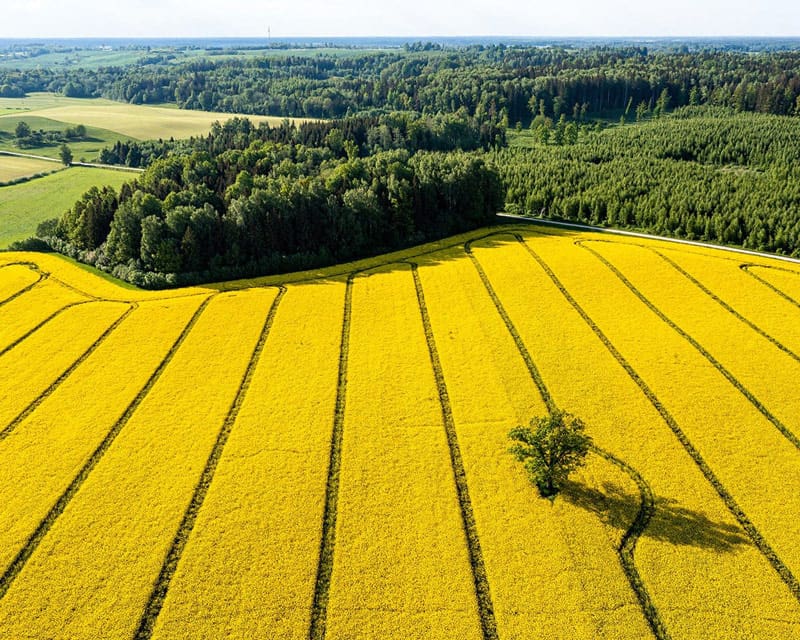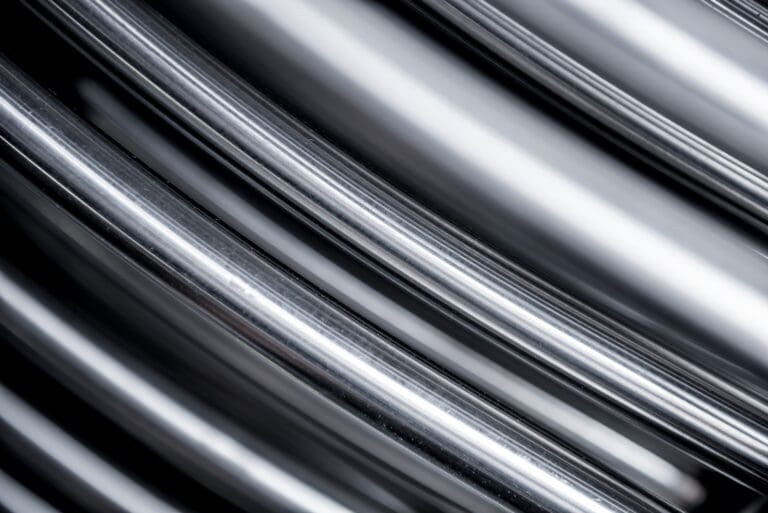Olive oil production estimates for the new campaign soar
The Expana Benchmark Prices (EBP) for extra virgin olive oil have moved significantly lower on the week with the EBP for Andalusia settling at €7.90/kg shedding €0.28/kg. This price places the EBP at the lowest level since April 2024; the decline according to market players is primarily driven by soaring production estimates for the new season and sellers looking to offload goods before prices decline further.
Industry insiders commented to Expana that Spain in the 2024/25 season could produce between 1.2 to 1.45 million metric tonnes of olive oil which would be a significant increase of 350,000 metric tonnes on the low end or 600,000 metric tonnes if the higher end of these estimates is reached. If these numbers are achieved, it would be much closer to ‘market norms’ with Spain typically producing olive oil volumes within the range above in ‘normal’ years with the last two seasons producing virtually half or less of these norms. However, it is worth noting that it is a long time until harvest which usually begins across the EU in October and November extending into the first few months of the following year therefore, weather could still play a critical role if heat and dryness begin to mount in the coming months.
Market players told Expana that Greek production could virtually double from the 130,000 metric tonnes produced in the 2023/24 season with estimates of 260 to 270,000 metric tonnes being provided for the upcoming 2024/25 campaign. Similarly to Spain, this would be a return to ‘normal’ production volumes for Greece which has been plagued by the olive oil fly in prior seasons. Turning to Italy production volumes may decline according to market players with estimates being provided to Expana of circa 275,000 metric tonnes a decline of around 50,000 metric tonnes compared to the volumes produced in the 2023/24 season. The reason for the decline is mostly due to the cyclical production of olive trees with this season being the lower end of the production cycle for Italy.
Examining other key producers Expana has received estimates for Portugal at 200,000 metric tonnes in the 2024/25 season– an increase of circa 50,000 metric tonnes compared to the prior season. Turkish production volumes could increase significantly with market players commenting that volumes of 300,000 metric tonnes plus could be possible in 2024/25 a stark contrast to the 180,000 metric tonnes produced in the 2023/24 season. Turning to Tunisia market players submitted optimistic estimates of 250,000 metric tonnes to Expana however, other industry insiders have commented that this could be on the upper end as the trees are said to be ‘weak’ and could produce less volume to survive.
The production estimates for the 2024/25 season could be a turning point in production for the EU and its import partners as production levels as estimated would be a return to ‘normal’ years. It is critical to note that when production levels were near the estimated levels as aforementioned extra virgin olive oil prices were circa €3.50/kg to €4.00/kg with some players commenting to Expana we could potentially see a return to these price levels in the 2024/25 campaign. However, it is very early and ‘dangerous’ to assume that these production estimates will be the final volumes although this is what a trader told Expana is happening in the market.
Due to the poor production volumes and intense heat for the 2023/24 campaign, there is currently a severe lack of good quality extra virgin olive oil left within the market and it is many months until the new harvest starts let alone the volumes being readily available. Therefore, as the season wears on it is possible that these good quality volumes diminish further which could cause a tug-of-war between the expectations of strong upcoming production with current market realities.
Europe lysine HCl prices at eight-month high amid freight costs, vessel shortage
Chinese Europe delivered lysine HCl spot prices are at an eight-month high, driven by uncertain deliveries and rising freight costs. While market coverage for Q3 is reported to be sufficient, several factors – including potential import tax changes as quotas expire, logistics and an anti-dumping investigation about material from China – are creating firm market sentiment as buyers face decisions for Q3 and Q4.
DDP Northwest Europe lysine HCl spot prices were last assessed at €1.75-1.81/kg on 27 June, their highest level since October 2023. Prices have gained over 27% in value since the start of this year. Two importers confirmed concluding transactions above €1.80/kg. One trader said it had sold at €1.84/kg excluding the import duty. A second trader reported transactions for full truckloads within the European Union at €1.84/kg. One of the traders said that sea freight costs were unlikely to come down anytime soon, with shipping companies predicting freight costs to go up to “COVID-19 levels”, while many sellers refrained from quoting so as not to lose money. However, some end-users claimed they had been offered Q4 material for €1.55-1.60/kg, the trader added. A buyer said it had covered its needs for Q4 already but added that import taxes and delayed shipments could continue to support prices. “European end-users and operators are very concerned about supply for Q3 and Q4. Due to the continuous disturbances in sea freight … accepted prices are moving higher every week, especially for lysine HCl. Q3 price levels for HCl are now similar to Q4’s, despite Q3 lysine not having import duties. Some premium is accepted for the shorter term because of scarcer availability”, noted a third trader last week.
According to Expana, seasonal demand growth, which usually occurs in Q3, started earlier this year. Seeing the potential for rising ocean freight costs and supply disruptions, shipping orders have started to arrive earlier to avoid peak prices. As a result, market sources expect shipments to peak in July-August. To meet demand, carriers are launching new vessels for trans-Pacific and Asia-Europe voyages. In addition, smaller regional carriers are also entering the trans-Pacific for the first time since the COVID-19 pandemic, thereby diverting vessels from regional routes, which is likely to lead to an increase in ocean freight prices on regional routes. Hence, this is likely to balance the shipping market in the coming months.
Logistical issues, high shipping costs and ongoing EU anti-dumping investigations are impacting pricing and import decisions in Europe and the Americas despite a sufficient supply of lysine HCl in China, global traders and buyers told Feedinfo in mid-June. The European Commission (EC) has initiated an anti-dumping investigation into Chinese lysine imports into the EU following a complaint from METEX NOOVISTAGO, the EU’s sole producer of lysine. The complaint alleges that imports of lysine from China are being sold at unfairly low prices, causing significant harm to the EU’s feed additive industry. Moreover, market participants previously noted that the import quota for lysine sulfate was expected to be exhausted in June, with the quota for liquid lysine and HCl likely to be full in September, depending on stock-building and how much import demand there is. Import duties in Q4 will be a price driver later this year, sources said.
A combined total of 300,000 tonnes of lysine HCl and liquid lysine imports are allowed into the EU tariff-free in the 2024 calendar year; beyond that volume, a tariff rate of 6.3% will be applied. Additionally, a tariff-free quota of 100,000 tonnes for lysine sulphate imports is allowed. Prompt supply in Q3 will be reduced due to scheduled plant maintenance at several Chinese factories, including producers Eppen, GBT and Wanli Runda.
Dsm-firmenich Lalden site shut down due to extreme weather conditions
A production site owned by dsm-firmenich in Lalden, Switzerland, has been shut down due to harsh weather conditions, the company said on July 1st. The products manufactured at the site impact the supply of vitamin A, vitamin E intermediates and vitamin B3/niacin through the company’s partner Arxada.
“Due to the extreme weather and associated high water and mud flows in Wallis, Switzerland, our site in Lalden did a controlled shutdown,” a source at dsm-firmenich said. “Cooling water installations that take water from the river, are affected by the mud. We are assessing the situation and hope there is no damage. Once the assessment is complete, we can indicate timing of restart and expected impact on B3/A/E supply”, added the source.
Sanders acquires Soufflet Agriculture’s feed business
French feed manufacturer Sanders, part of Avril Group, has acquired InVivo Group subsidiary Soufflet Agriculture’s feed operations, which include a production facility in Talmont-Saint-Hilaire (Vendée department). Sanders entered exclusive talks with InVivo to acquire Soufflet Agriculture’s feed business in July 2023.
“By integrating this activity, Sanders consolidates its presence in the western region, particularly in the beef cattle segment. This allows us to create value and get even closer to our farmer clients, especially in Vendée,” said Sanders’ Managing Director, Philippe Manry. “The acquisition of Soufflet Agriculture’s animal nutrition business by Sanders is in line with the ongoing partnership between Avril and the InVivo group since 2005. This project highlights the expertise of the current Soufflet Nutrition teams and will strengthen its commercial position,” added Christophe Passelande, President of Soufflet Agriculture.
The Talmont-Saint-Hilaire site produces 70,000 tonnes/year of feed (mainly cattle feed) and employs 20 staff. Sanders operates 28 feed factories in France and has a feed production capacity of 3.4 million tonnes/year. The business has a workforce of 1,150 people.
Dr. Bata inaugurates factory in Brazil
Dr. Bata Company, a Hungarian biotechnology firm, inaugurated its first factory in Brazil, Santa Catarina last month. The total investment exceeded BRL 30 million (USD 5.5 million) and was made in partnership with Vetanco.
Dr. Bata produces plant extracts, enzymes and mycotoxin inhibitors for disease prevention in poultry and swine. The new manufacturing plant, covering approximately 3,000 square meters, features a laboratory for quality control, diagnostics and an R&D center. Dr. Bata products have been sold in the Brazilian market since 2011 through an exclusive agreement with Vetanco. Dr. Bata currently holds several patented products and sells to over 60 countries through subsidiaries and partners across Europe, the US and Asia.



